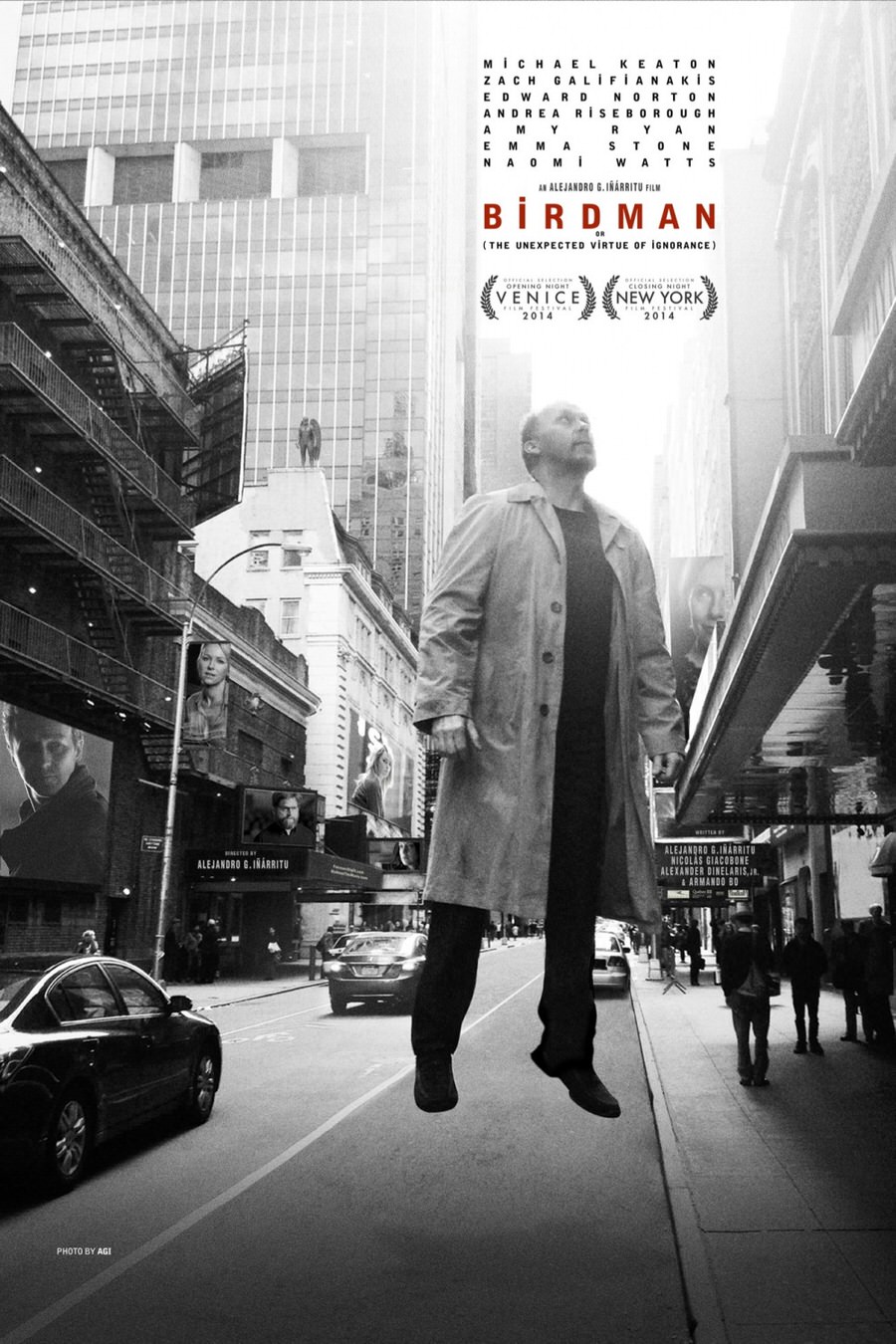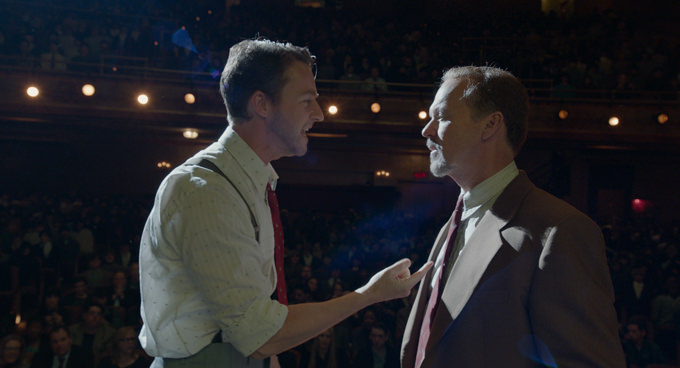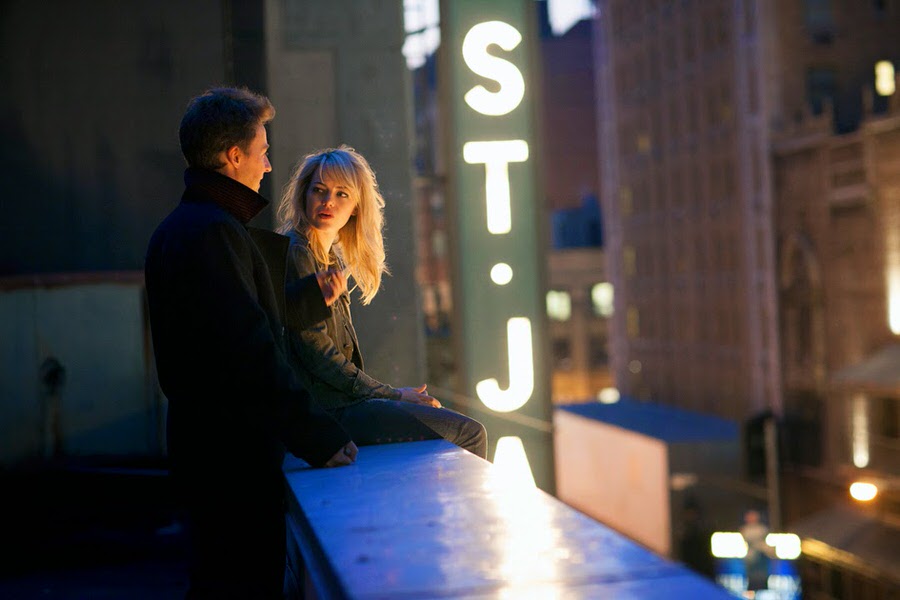Birdman


 A film about an actor, played by Michael Keaton, who used to star in a superhero franchise (as Keaton did, playing Batman)? It sounds light and fluffy, but Birdman is robust, satirically brilliant and also deadly serious. Mostly taking place behind stage in the NYC St. James Theatre, it has such a high caliber of ensemble acting talent, audacious directing and overlapping dialogue that it reminds me of nothing less than the productions of Orson Welles’ Mercury Theatre repertory company.
A film about an actor, played by Michael Keaton, who used to star in a superhero franchise (as Keaton did, playing Batman)? It sounds light and fluffy, but Birdman is robust, satirically brilliant and also deadly serious. Mostly taking place behind stage in the NYC St. James Theatre, it has such a high caliber of ensemble acting talent, audacious directing and overlapping dialogue that it reminds me of nothing less than the productions of Orson Welles’ Mercury Theatre repertory company.
Birdman is a character study of a man who’s either on the verge of greatness, failure, or madness – or a combination of the above. Keaton’s Riggan Thomson is attempting to rehabilitate his waning career and earn some critical respect by writing, starring in, acting and directing a play based on a Raymond Carver short story. To add to the enormous pressure this entails, Riggan also has to contend with an explosive and unpredictable method actor in the manner of Marlon Brando (Edward Norton), a harried publicist (Zach Galifianakis), a jaded daughter just out of rehab (Emma Stone), his former wife (Amy Ryan, who’s been shamefully underused in film since her roles in Gone Baby Gone and Before the Devil Knows You’re Dead in 2007), a possibly pregnant girlfriend (Andrea Riseborough), a fellow actor (Naomi Watts), and an ice cold drama critic in the mold of John Simon (Lindsay Duncan).
And then there are Riggan’s bizarre internal conflicts, which we see as physical manifestations, giving the film a level of wicked magical realism on top of the already-arresting and hilarious put-on-a-show proceedings. Along the way we get some superb acting (an absurd fist fight between Keaton and Norton has just the right mixture of pathos, sad humor and suspense) which required split-second timing. It gives little away to say that nearly all of Birdman seems to be one continuous shot, ala Hitchcock’s Rope (1948), with the sort of through-the-grate-and-window dissolves Welles used in Citizen Kane. This simulation of real time transpiring gives the story an appropriately claustrophobic feel, to the point that the few times the story ventures outside the building into the night air, it’s a liberating relief – a breath of fresh air, even if it’s NYC air.
For such a novel film, an ordinary film score wouldn’t do, and Iñárritu uses a driven, edgy, compulsive drum score performed and composed by Antonio Sánchez (who’s shown drumming in one scene in the background, like a shot from a Marx Bros. or Woody Allen farce) – mixed with gorgeous, melancholy sections of classical music like the second movement of Rachmaninoff’s Symphony No. 2 and, especially, the beginning of Mahler’s transcendent Symphony No. 9.
Through the course of Riggan’s journey, much is dealt with (but not in a preachy fashion) concerning the traps of celebrity, the costs of an artist’s life and the tensions between art and commerce. Emotionally involving and artistically adventurous, Birdman was one of the best films of 2014 and remains a favorite to this day.
—Michael R. Neno, 2019 Mar 26